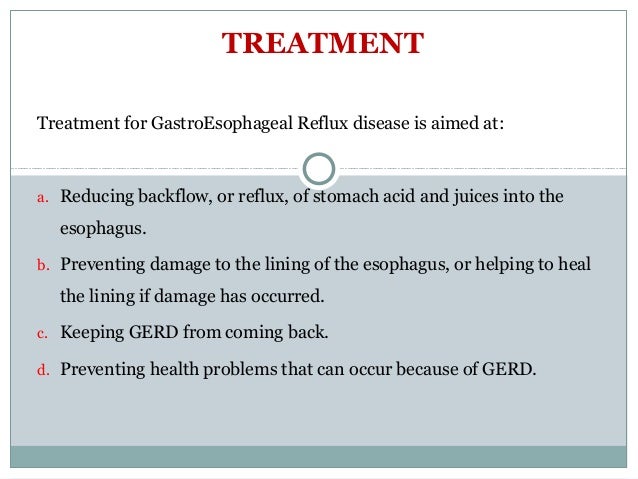Gerd Treatment Proton Pump Inhibitors
Introduction proton pump inhibitors (ppis) are the mainstay pharmacologic treatment for gastroesophageal reflux disease (gerd) however, 10 to 40% of patients with gerd remain symptomatic despite ppi therapy 1 heterogeneous mechanisms may contribute to poor ppi response including a disrupted anti-reflux barrier, increased transient lower esophageal sphincter (les) relaxations (tlesrs. Gerd treatment proton pump inhibitors. Proton pump inhibitors reduce the production of acid and are used to prevent and treat acid-related conditions including ulcers and gastroesophageal reflux disease (gerd) zantac (ranitidine) is an h2 (histamine) blocker that blocks the production of acid in the stomach.
gerd treatment proton pump inhibitors
Proton-pump inhibitors (ppis) are members of a class of medications whose main action is a profound and prolonged reduction of stomach acid production within the class of medications, there is no clear evidence that one agent works better than another they are the most potent inhibitors of acid secretion available this group of medications followed and largely superseded another group of. More and more people are looking at complementary and alternative medicine (cam) for alternatives to proton pump inhibitors for gerd. let’s learn more about natural remedies for gerd. try natural alternatives to ppis for instant relief. the most prominent symptom of acid reflux, or gerd (gastroesophageal reflux disease), is heartburn.. Proton pump inhibitors (ppis) are a class of drugs used to treat gerd, peptic ulcers, and <i>h. pylori</i>. examples of ppis include prilosec, prevacid, aciphex, protonix, nexium, and zegarid. common side effects are headache, diarrhea, constipation, vomiting, intestinal gas, fever, nausea, and rash..
